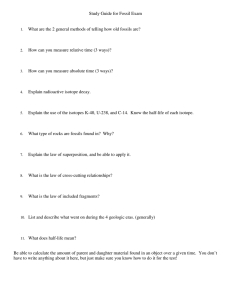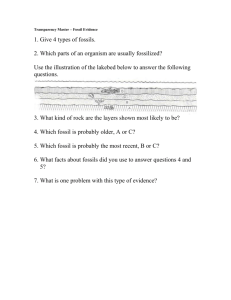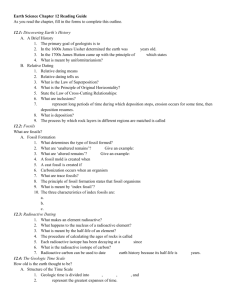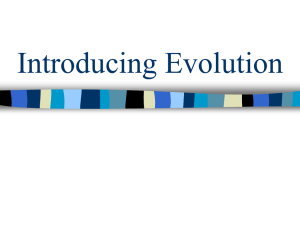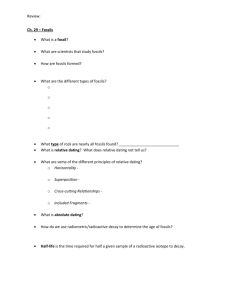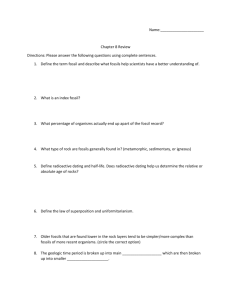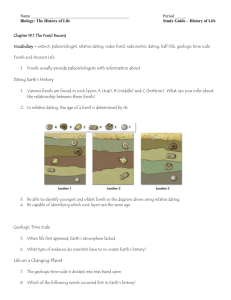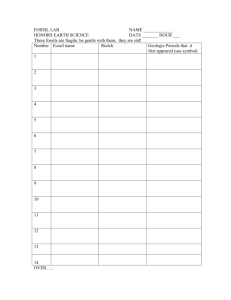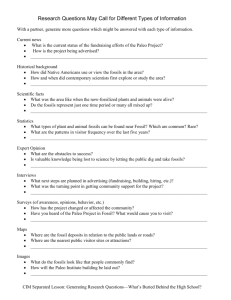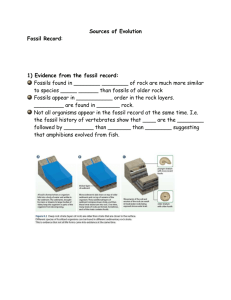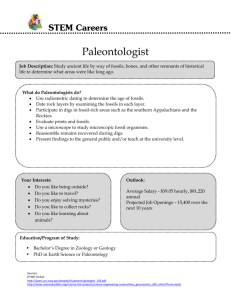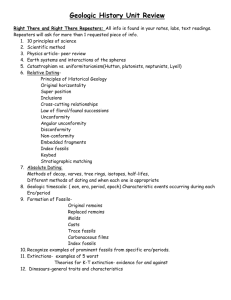Fossil Reading Questions
advertisement
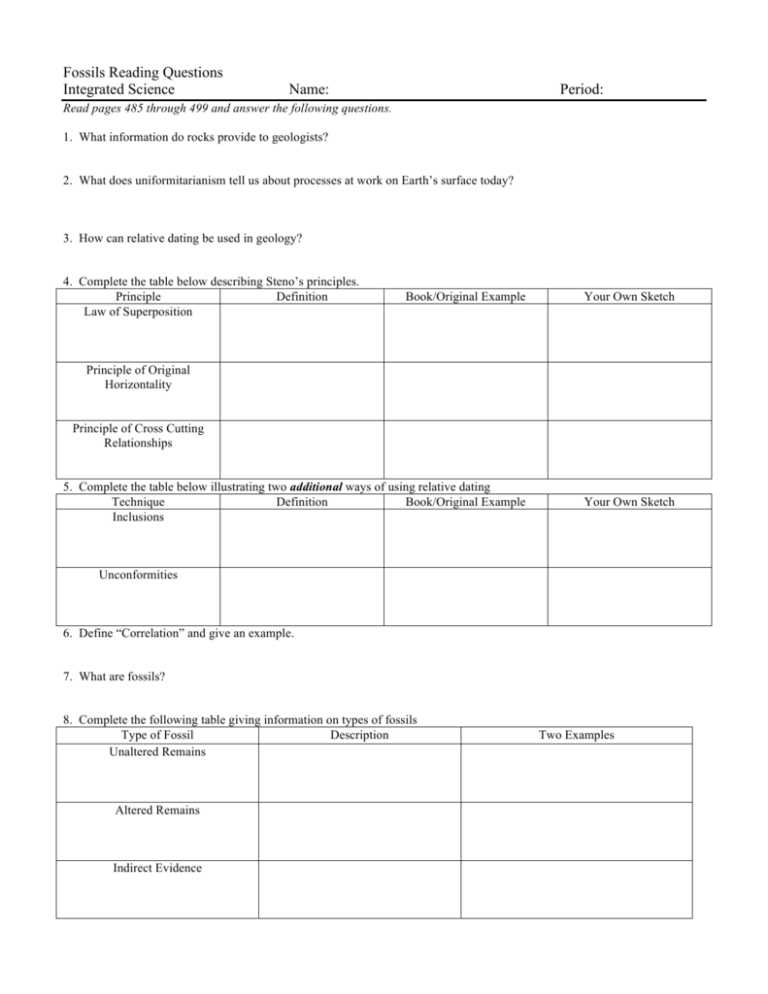
Fossils Reading Questions Integrated Science Name: Period: Read pages 485 through 499 and answer the following questions. 1. What information do rocks provide to geologists? 2. What does uniformitarianism tell us about processes at work on Earth’s surface today? 3. How can relative dating be used in geology? 4. Complete the table below describing Steno’s principles. Principle Definition Law of Superposition Book/Original Example Your Own Sketch 5. Complete the table below illustrating two additional ways of using relative dating Technique Definition Book/Original Example Inclusions Your Own Sketch Principle of Original Horizontality Principle of Cross Cutting Relationships Unconformities 6. Define “Correlation” and give an example. 7. What are fossils? 8. Complete the following table giving information on types of fossils Type of Fossil Description Unaltered Remains Altered Remains Indirect Evidence Two Examples 9. What two conditions are necessary to ensure fossilization? 10. What is the principle of fossil succession? 11. Based on the rock record from around the world, geologists have identified an order of fossils: an Age of ________________ an Age of Fishes an Age of ________________ swamps an Age of ________________ an Age of Mammals 12. What is an index fossil and what are some characteristics of good index fossils? 13. Give two ways that fossils can be used to interpret and describe ancient environments. 14. Draw a few sketches that summarizes the information in the section on page 496 titled “Basic Atomic Structure” 15. What happens to atoms that are radioactive? 16. An unstable or radioactive isotope of an element is called the ______________________. The isotopes that result from the decay of the parent are called the __________________ products…Radioactive decay continues until a ______________ or non-radioactive isotope is formed. 17. Explain the concept of half-life. 18. Briefly describe radiometric dating. 19. What is the half-life of Uranium 238 and what kinds of things is it used to date? 20. What is the half-life of Carbon-14 and what kinds of things is it used to date?
